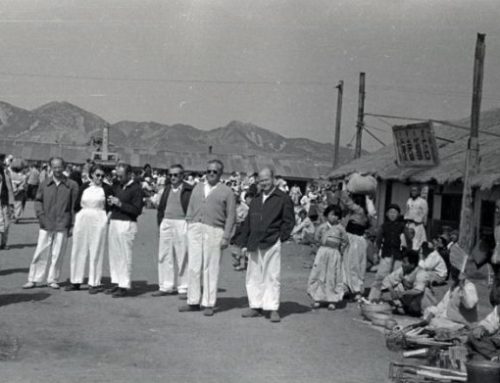International Day of Education: Celebrating with football history
The United Nations General Assembly has proclaimed January 24th as International Day of Education, in celebration of the role of education for peace and development and highlighting how inclusive and equitable quality education and lifelong opportunities should be available for all.
EuroClio’s own Football Makes History project keeps inclusive education at the forefront, aiming to help young people explore European history and heritage through the lens of football to tackle social exclusion. We look at issues of racism, gender & sexism, homophobia, migration, poverty & inequality, nationalism, war & peace – all through the lens of the world’s most popular game!
Our project – financed through the Erasmus+ scheme of the European Union – is now entering its final stages and we are publishing educational resources on a weekly basis. We’d like to seize the opportunity of the International Day of Education to showcase some of the ways our project can benefit you as an educator to teach an inclusive history.
The ready-made and transferable learning activities on European football history are designed to help tackle rising intolerance and engage students in critical thinking. Among others you’ll find lesson plans exploring nationalism and the links to armed conflicts, borders and national identities, football and identity markers, and economic inequalities – with many more to come!
In addition to these full-fledged lessons plans, we have also added another feature useful to the educator: The Football Lives. These profiles are not your usual hall of fame. While some football lives are heroic and have paved the way for inclusion, democracy and human rights, others have done just the opposite. Take for instance the journey of Alex Villaplane who went from sporting hero, captaining France at the 1930 World Cup, to being executed by firing squad as a war criminal and collaborator with the Nazi occupier in 1994! A traitor to some can of course also be a hero to others. One such figure is Jörg Berger whose footballing career stalled after he refused to sign up as an informer for the East German secret police, Stasi, before later escaping to the West. While celebrating great footballers with interesting backgrounds (hello Zlatan, Maradona, Rapinoe and Özil!), our life stories also point to some of the darker sides of football and football history. Robert Enke committed suicide after years of suffering from depression. Was football partly at fault?
A common feature of all these Football Lives is that they tell a wider story that could feature as part of a history lesson. To help you as an educator, we have included a few “thinking points” to each story.
Have you already used (or plan to use!) some of our lesson plans or life stories in your teaching practice? If so, we’d love to hear from you! (please get in touch with Andreas Holtberget at andreas@euroclio.eu!)
We finally invite you to follow our Football Makes History accounts on social media to get the latest of both news and educational material. Stay tuned also for a number of professional development opportunities that will take place online or on site in the Netherlands, Germany, Romania and the UK this coming Spring. EuroClio’s own webinar series on football history will kick off 28th May!














